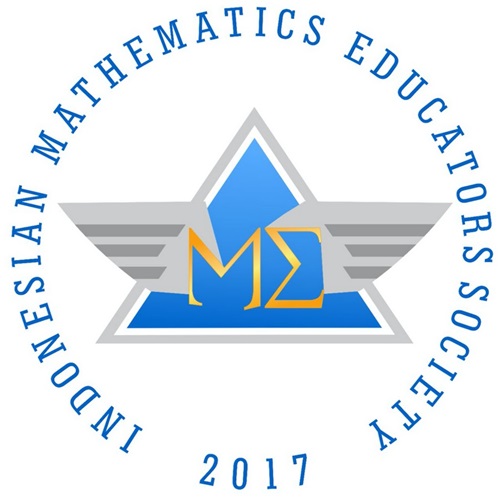Analysis of Student Ability in Solving the Mathematical Problems in terms of Mathematical Attitudes and Gender in Ruteng
DOI:
https://doi.org/10.22437/edumatica.v10i2.10467Keywords:
problem-solving abilities, mathematical attitudes, college student, rutengAbstract
A person's problem-solving abilities can be differentiated according to mathematical attitudes and gender differences. This study aims to describe students' problem solving abilities based on the category of mathematical attitudes and their relationship based on gender. The populations in this study were students of the mathematics education study program at the Catholic University of Santu Paulus Ruteng and then randomly selected grade III C students were selected as samples. The instruments used were a mathematical attitude questionnaire and a problem-solving ability test that had been tested for validity. Based on the category of high, medium, and low mathematical attitudes, 6 research subjects were selected, representing 3 men and 3 women respectively. The six research subjects were given a problem solving ability test. It was found that the level of problem solving ability of students was directly proportional to their mathematical attitudes. YTM and MYD students, who have high mathematical attitudes, also have high problem solving abilities. WHT and KDM have moderate mathematical attitudes; their problem solving abilities are also moderate. OTP and MTP who have low mathematical attitudes also have low problem solving abilities. While the value of men's mathematical problem-solving abilities with a moderate mathematical attitude is in the medium category, for women it is in the high category. Whereas in the category of high and low mathematical attitudes; both men and women obtained the same problem solving ability scores.
Downloads
References
Das, K. P., & Wilkinson, M. (2017). The effects of gender , class level and ethnicity on attitude and learning environment in college algebra course The effects of gender , class level and ethnicity on attitude and learning environment in college algebra course. Jurnal of Mathematical Science & Mathematics Education, 6(2), 44–55.
Demirel, M. (2016). Effects of Problem-Based Learning on Attitude: A Meta-analysis Stud. EURASIA Journal of Mathematics, Science & Technology Education, 12(8), 2115–2137. https://doi.org/10.12973/eurasia.2016.1293a
Elçi, A. N. (2017). Students ’ Attitudes Towards Mathematics and the Impacts of Mathematics Teachers ’. Acta DIdactia Napocensia, 10(2), 59–68.
Fuadi, I., Minarni, A., & Banjarnahor, H. (2017). Analysis Of Students ’ Mathematical Problem Solving Ability In Ix Grade At Junior High School Ar-Rahman Percut. Internasional Journal of Novel Research in Education and Learning, 4(2), 153–159.
Gunur, B., Makur, A. P., & Ramda, A. H. (2018). Hubungan antara kemampuan numerik dengan kemampuan pemecahan masalah matematis siswa di pedesaan. JUrnal Matematika Dan Pembelajaran, 6(2), 148–160.
Gunur, B., Ramda, A. H., & Makur, A. P. (2020). Pengaruh Pendekatan Problem Based Learning Berbantuan Masalah Open-Ended Terhadap Kemampuan Berpikir Kritis Ditinjau Dari Sikap Matematis Siswa. JOHME: Journal of Holistic Mathematics Education, 3(1), 1–15.
Hidayat, W., Wahyudin, & Prabawanto, S. (2018). Improving students ’ creative mathematical reasoning ability students through adversity quotient and argument driven inquiry learning Improving students ’ creative mathematical reasoning ability students through adversity quotient and argument driven inqu. In Journal of Physics: Conference Series. https://doi.org/doi :10.1088/1742-6596/948/1/012005
Kaiser, G., & Sriraman, B. (2010). No Title. (B. Sriraman & L. English, Eds.). New York: Springer.
Karjanto, N. (2017). Attitude toward mathematics among the students at Nazarbayev University Foundation Year Programme, 48(6), 849–863.
Khuziakhmetov, A. N., & Gorev, P. M. (2017). Introducing learning creative mathematical activity for students in extra mathematics teaching. Bolema - Mathematics Education Bulletin, 31(58), 642–657. https://doi.org/10.1590/1980-4415v31n58a06
Köse, S., Sahin, A., Ergün, A., & Gezer, K. (2010). The effects of cooperative learning experience on eighth grade student’s Achievement and Attitude Toward Science. Education, 131(1), 169–180.
Makur, A. P., Prahmana, R. C. I., & Gunur, B. (2019). How mathematics attitude of mothers in rural area affects their children ’ s achievement How mathematics attitude of mothers in rural area affects their children ’ s achievement. Journal of Physics:Conference Series, 1188(2019), 1–10. https://doi.org/10.1088/1742-6596/1188/1/012009
Mata, M. D. L., Monteiro, V., & Peixoto, F. (2012). Attitudes towards Mathematics : Effects of Individual , Motivational , and Social Support Factors, 2012. https://doi.org/10.1155/2012/876028
NCTM. (2000). Principles and Standards for School Mathematics. Reston: NCTM,Inc.
Novriani, M. R., & Surya, E. (2017). Analysis of Student Difficulties in Mathematics Problem Solving Ability at MTs SWASTA IRA Medan. IJSBAR, 33(3), 63–75.
Nur, G., & Sundayana, R. (2016). K Emampuan P Emecahan M Asalah M Atematis Dan S Ikap S Iswa Terhadap M Odel P Embelajaran K Ooperatif T Ipe Air Dan P Robing -P Rompting M Athematical P Roblem S Kill And S Tudents ’ A Ttitude Towards C Ooperative L Earning M Odel Air And P Robing -P Romp. Jurnal Pendidikan Matematika STKIP Garut, 5(3), 305–314.
Purnomo, Y. (2016). Pengaruh Sikap Siswa Pada Pelajaran Matematika Prestasi Belajar Matematika. JKPM, 02(01), 93–105.
Willis, J. (2010). Learning to Love Math: Teaching Strategies That Change Student Attitudes and Get Results. Alexandria: ASCD.
Yáñez-marquina, L., & Villardón-gallego, L. (2016). Attitudes towards mathematics at secondary level : Development and structural validation of the Scale for Assessing Attitudes towards Mathematics in Secondary Education ( SAT- MAS ). Electronic Journal of Research in Educational Psychology, 14(40), 557–581. https://doi.org/10.14204/ejrep.40.15163
Downloads
Published
Versions
- 2020-10-29 (2)
- 2020-10-28 (1)
How to Cite
Issue
Section
License
Copyright (c) 2020 Apolonia Hendrice Ramda, Bedilius Gunur, Alberta Parinters Makur, Fulgensius Efrem Men

This work is licensed under a Creative Commons Attribution-NonCommercial-ShareAlike 4.0 International License.







